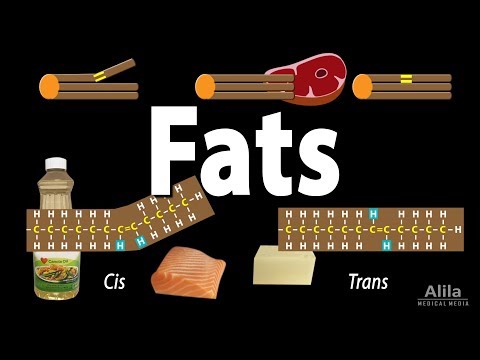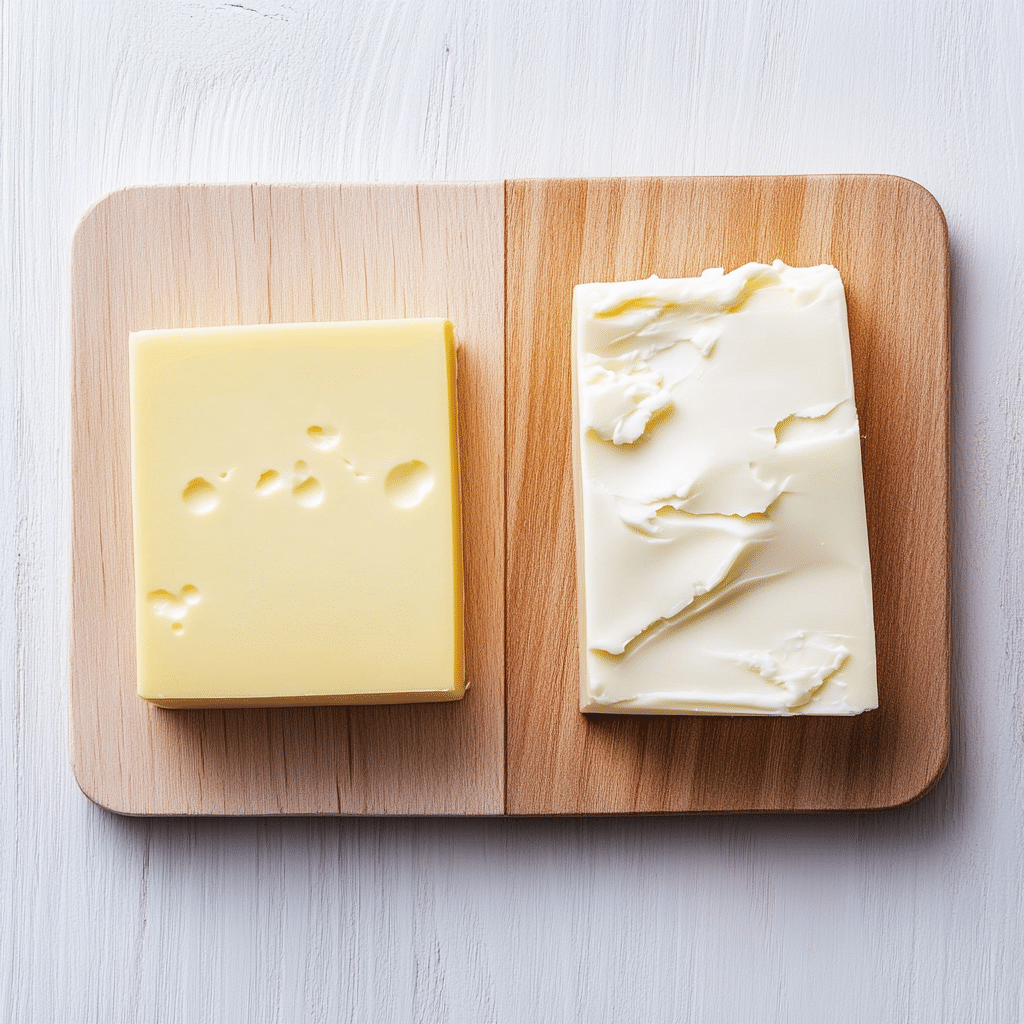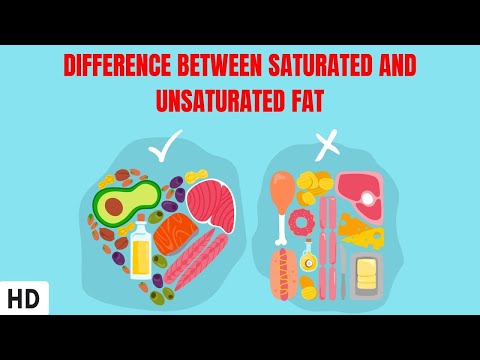When it comes to nutrition, one hot topic that keeps popping up is the age-old debate of saturated fat vs unsaturated fat. Many people wanting to get shredded and build muscle may find themselves confused about what fats are friends and which are foes. Understanding these two types of fat is vital for anyone serious about their fitness and health journey. So let’s dive into the details and uncover which type might be healthier for you!

1. Understanding the Basics: Saturated Fat vs Unsaturated Fat
Let’s break it down real simple: saturated fats are mainly found in animal products like butter, cheese, and fatty cuts of meat. These bad boys are usually solid at room temperature. On the flip side, unsaturated fats come from plant sources and fish. Think olive oil, avocados, and fatty fish like salmon. These fats stay liquid at room temperature. Both types play different roles in your diet, so it’s essential to understand where they come from and how they affect your health.
1.1 Chemical Composition and Structure
To get at the heart of the saturated vs unsaturated fat topic, first, you’ve gotta look at their molecular structures. Saturated fats have straight carbon chains with no double bonds. This allows them to stack neatly, making them solid. An example is coconut oil, which is loaded with medium-chain triglycerides that’ll give you energy. In contrast, unsaturated fats contain one or more double bonds, creating bends in their structure, which keeps them from packing tightly. This means your body can digest them differently, and they play distinct roles in your metabolism—like the healthy fats found in olive oil or the omega-3 fatty acids in fatty fish like salmon.

2. The Health Debate: Saturated vs Unsaturated Fat
2.1 The Cardiovascular Perspective
The science surrounding saturated fat vs unsaturated fat and heart health is a contentious one. Historically, organizations like the American Heart Association recommended limiting saturated fat based on links to high cholesterol levels. But hold on a second! Recent studies, like a 2022 meta-analysis published in the British Journal of Nutrition, suggest that not all saturated fats behave the same way. For instance, fats from full-fat dairy products like yogurt or cheese may not significantly increase the risk of heart disease.
2.2 The Role of Unsaturated Fats
On the flip side, unsaturated fats have seen the spotlight for their health benefits. Diets rich in these fats, such as the Mediterranean diet, which is full of olive oil and nuts, have been linked to lower risks of cardiovascular diseases. Brands like California Olive Ranch and Pompeian take pride in their high-quality olive oils packed with monounsaturated fats and antioxidants that encourage heart health. So, if you want to keep your ticker happy, incorporating more of these fats is a smart move!

3. Comparing Common Sources: Unsaturated vs Saturated
3.1 Everyday Food Choices
Let’s get practical. When you sit down for breakfast, ask yourself: Would you rather have buttered toast, swimming in saturated fat, or avocado toast, brimming with monounsaturated fat? Many people love butter for its rich flavor and nostalgic comfort, but swapping it for avocado is a choice that packs a healthier punch. With brands like Haas avocados making their way into supermarkets, it’s easier than ever to make the switch!
3.2 Cooking Oils: Making the Right Choice
Cooking oils are another area where the saturated vs unsaturated fat debate gets interesting. While coconut oil might give your dish a tropical twist, the high levels of saturated fat can be a concern for heart health. Opting for olive oil, like the iconic Bragg Organic Extra Virgin, not only enhances flavor but also adds valuable nutrients and healthy fats to your meals. Recent research indicates that excessive intake of coconut oil can elevate LDL cholesterol, which is worth considering if heart health is your goal.

4. Implications for Weight Management: Saturated vs Unsaturated Fat
4.1 Energy Density and Caloric Intake
Here’s a kicker: saturated fats are calorie-dense. A single serving of butter, which is about 14 grams, packs in roughly 102 calories and 7 grams of saturated fat. On the other hand, a similar serving of almonds contains the same calories but provides protein, fiber, and heart-healthy unsaturated fats. If you’re aiming for effective weight management, choosing unsaturated fats can be a game-changer.
4.2 Behavioral Considerations in Fat Consumption
Let’s get real—our eating habits are influenced by personal choices and cultural backgrounds. Those decadent, high-flavor saturated fats can be hard to resist, especially in comfort foods. But making small changes, like adding unsaturated fats into familiar recipes, can make all the difference. Research suggests that gradual changes yield better long-term dietary shifts. It’s time to transform those traditional recipes without sacrificing flavor!

5. The Modern Dietary Landscape: Adapting to Change
5.1 Current Trends and Consumer Choices
As knowledge about dietary fats evolves, we see notable trends toward healthier eating. Plant-based diets are becoming popular, thanks in part to brands like Impossible Foods and Beyond Meat that deliver protein alternatives with beneficial fat profiles. Consumers are more conscious about their food choices, seeking unsaturated fats as a key component of their diets.
5.2 Recommendations from Nutrition Experts
Navigating the saturated fat vs unsaturated fat dilemma isn’t as difficult as you might think. Nutrition experts suggest focusing on whole, minimally processed foods. They promote incorporating a variety of healthy fats while moderating saturated fat intake. Following the Dietary Guidelines for Americans, emphasizing unsaturated fats can lead to improved health.
Embracing a Balanced Approach to Fats
In the end, the clash of saturated fat vs unsaturated fat isn’t about labeling one as good or bad. A balanced diet that includes a variety of fats, made up of whole foods, and moderation is the key to long-term health. Empowering yourself with knowledge about what you’re putting into your body will ignite your journey towards better fitness and overall well-being. As we move into 2024, let’s make informed dietary choices and commit to a healthier, shredded future!
Now, throw those weights around, pump that iron, and remember: you’ve got this! Whether you’re whipping up meals or fueling your workouts, knowing the difference between these fats will help you stick to your goals. And for all those fitness fanatics in Cincinnati looking for things to do this weekend, be sure to check out things To do in Cincinnati This weekend after powering up!
Stay shredded and take care of the only body you’ve got! If you’re curious about other health topics like the importance of mental well-being in fitness, check this cope meaning article for more insights.
Saturated Fat vs Unsaturated Fat: Engaging Fun Trivia and Interesting Facts
The Basics of Fat Types
When chatting about saturated fat vs unsaturated fat, it’s essential to grasp what each means. Saturated fats are typically solid at room temperature and are often found in animal products, like butter, bacon, and even certain plants like coconut oil. Unsaturated fats, on the flip side, are usually liquid—think olive oil or avocados. Did you know that some fats can actually serve as a plant-based alternative to traditional sources? For example, the Lelo Sona, while famous for its design, also highlights how products can combine health and pleasure, transitioning into a world where health meets lifestyle!
The Health Debate
Now, here’s where it gets spicy (like Johnny Cash’s “Ring of Fire”). The ongoing debate about saturated fat vs unsaturated fat has left many scratching their heads. While overly indulging in saturated fat is often linked to heart issues, it’s also crucial to remember that not all fats are created equal. A little trivia nugget: even wisdom tooth extraction can sometimes be affected by diet, especially if you’re munching on a lot of high-fat goodies post-surgery! Getting a balanced diet is key, as certain unsaturated fats can reduce inflammation and improve heart health. So, while indulging in those saturated delights like ice cream might be tempting, moderation is vital.
Fats in Your Daily Life
Interestingly, the balance of saturated fat vs unsaturated fat can be seen in your pantry. For instance, an average American’s intake often skews more towards saturated fats, which can lead to health issues if consumed in excess. By incorporating more unsaturated fats, such as those found in nuts and seeds, you can make healthier lifestyle choices. Fun fact: did you know there’s a simple conversion for centimeters to inches? If your favorite avocado is about 17cm in Inches, that’s roughly 6.7 inches around! Isn’t that fascinating? Next time you’re cooking, remember that the type of fat you use can be as impactful as knowing when to recognize symptoms of Nuchal rigidity in a friend who might be feeling under the weather.
In summary, whether you lean towards saturated fat or unsaturated fat, understanding the differences is key. Knowledge is power, and making informed choices can pave the way toward a healthier lifestyle. So the next time you’re whipping up a meal or planning a snack, think about how the saturated fat vs unsaturated fat scale can tip in your favor!



























